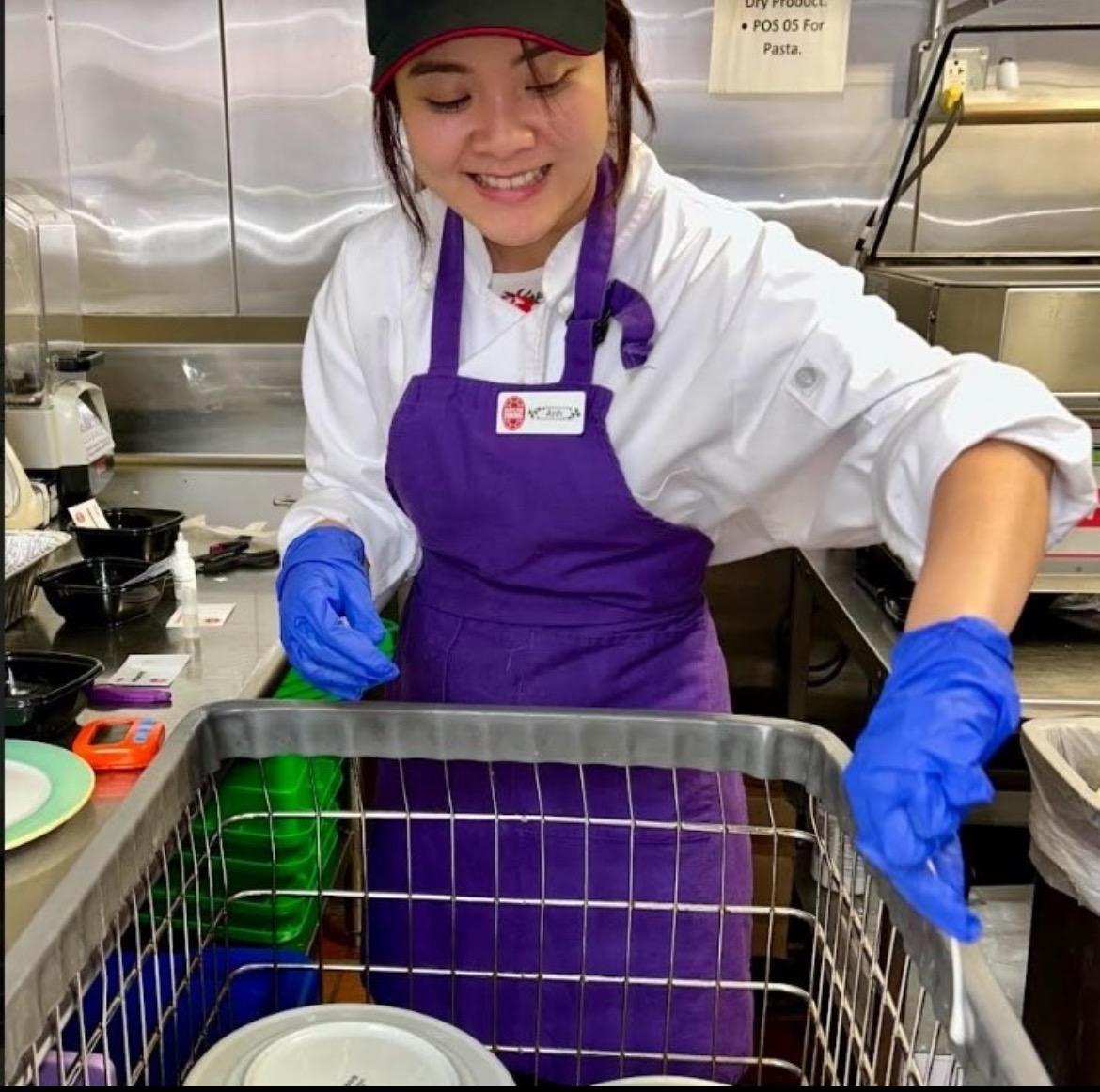
Program Overview
The University of Maryland College Park Dietetic Internship is a post-baccalaureate, certificate-based supervised practice program designed to provide comprehensive training in general dietetics with a concentration in Information Management, Communication, and Nutrition Informatics.
To be eligible to apply, applicants must: Have earned a graduate degree or provide a documented plan to complete one by the end of the internship and hold a valid Verification Statement from an accredited Didactic Program in Dietetics (DPD). If a student is still completing a master’s degree, they must submit a clear plan showing how their graduate coursework and degree will be completed by the end of the internship.
This ACEND-accredited dietetic internship meets the 2022 Eligibility Requirements and Accreditation Standards established by the Accreditation Council for Education in Nutrition and Dietetics, preparing interns for entry-level practice and Registered Dietitian Nutritionist (RDN) credentialing.
The program offers diverse learning experiences designed to expand the intern’s knowledge and skills across the field of dietetics, with a focus on the application of information technology and nutrition informatics. Through supervised practice at a variety of off-site facilities, interns gain hands-on experience, build a wide range of professional skills, and connect with potential mentors across the Baltimore–Washington corridor.
These varied rotations foster the development of critical thinking, problem-solving, effective communication, and team collaboration—essential skills for success as a Registered Dietitian Nutritionist (RDN).
Program Schedule
The program length is 44 weeks, commencing on August 18, 2025 and concluding on June 19, 2026.
There are three days scheduled off for Thanksgiving holiday and two weeks of vacation scheduled during the last two weeks of December.
The program requires student participation Monday through Friday plus up to three possible Saturdays for conferences and other events.
There is a two-week orientation in August before the program officially begins. During the first day of orientation, interns receive an overview of the program and what to expect. They also receive the Policies & Procedures handbook and introduction to the shared drive and the online learning management system, ELMS-Canvas, where the program resources are stored. The handbook will include: program philosophy/mission, policies & procedures, program schedules, program outline, curriculum, evaluation forms, specific rotation guidelines, and directions to supervised practice settings.
The rest of the orientation is geared to cover important topics and competencies needed for interns to be successful in their supervised practice rotations.
Specific Rotations
Clinical
-
10 weeks in primary clinical rotation (8 weeks of training and 2 weeks of staff relief);
-
2 weeks in long-term care
-
2 weeks in outpatient renal dialysis;
-
2 weeks in pediatrics.
Clinical rotations are primarily located in the Baltimore and Washington D.C. area.
Community
-
6 weeks in a variety of community nutrition organizations, food banks, farm-to-school programs, and/or University of Maryland's Campus Dining Sustainability;
Food Service Management:
-
4-5 weeks in a food service facility in a hospital or a community organization supporting individuals with disabilities.
-
4 weeks at University of Maryland Dining Services and Sustainability.
Information Management and Communication:
-
6 weeks at USDA's FNS (Food Distribution Division, Child Nutrition/NETTA, Policy & Program Development Division and SNAP-Ed Connection).
-
Training during monthly technology class days.
Other:
-
2 weeks of orientation;
-
2.5 weeks of vacation (0.5 weeks for Thanksgiving + last 2 weeks of December);
-
1-week elective rotation where interns can go back to a rotation site they have already been or a new site of their choosing.
Program Benefits
- Committed internship faculty who are recognized nationally for their teaching and service expertise.
- Exposure to diverse community settings - Manna Food Center, Maryland Food Bank, Food & Friends, Renal Dialysis, and Campus Dining Sustainability.
- Class day lectures from experts in their respective areas.
- Rotations in varied clinical and food service management settings.
- Access to extensive university resources. Rotation through university-based Dining Services.
- Development of a network of contacts in the Baltimore-Washington corridor. Current clinical site options include: UMM Baltimore Washington Medical Center, Baltimore VA Medical Center, Children's National Medical Center, Frederick Memorial Hospital, Meritus Health, Sibley Hospital, Medstar Washington Hospital Center, Johns Hopkins Suburban, UM St. Joseph Medical Center, and St. Agnes Hospital.**
**Clinical sites are subject to change
Commuting and Transportation
The internship program has agreements with many off-site facilities in the DC/Baltimore Metro area for the supervised practice. The internship director tries to consider commuting when assigning rotations sites. Please expect that commute times for most rotations can be up to an hour (could me more depending on traffic). Therefore, this program requires all interns to have a car as they will be commuting to sites by car throughout the metropolitan Baltimore-DC area. Public transportation is not available for many of the sites.
Background Checks and Drug Screening
Students who participate in this post-baccalaureate program are assigned to off-site clinical experiences. These sites frequently run criminal background checks, fingerprint examination and/or drug screens before attendance is permitted. The University will honor the wishes of the site if they reject a student whose criminal background check, fingerprint results and/or drug screen results raise any concern. Similarly, each state has its own rules with regard to granting licensure to individuals who have criminal records. Please research and consider your own circumstances before applying to the program.
Program Policies & Procedures
The current Program Policies & Procedures Handbook is available as a PDF file. To view this file, you must have Adobe Acrobat Reader installed on your computer.